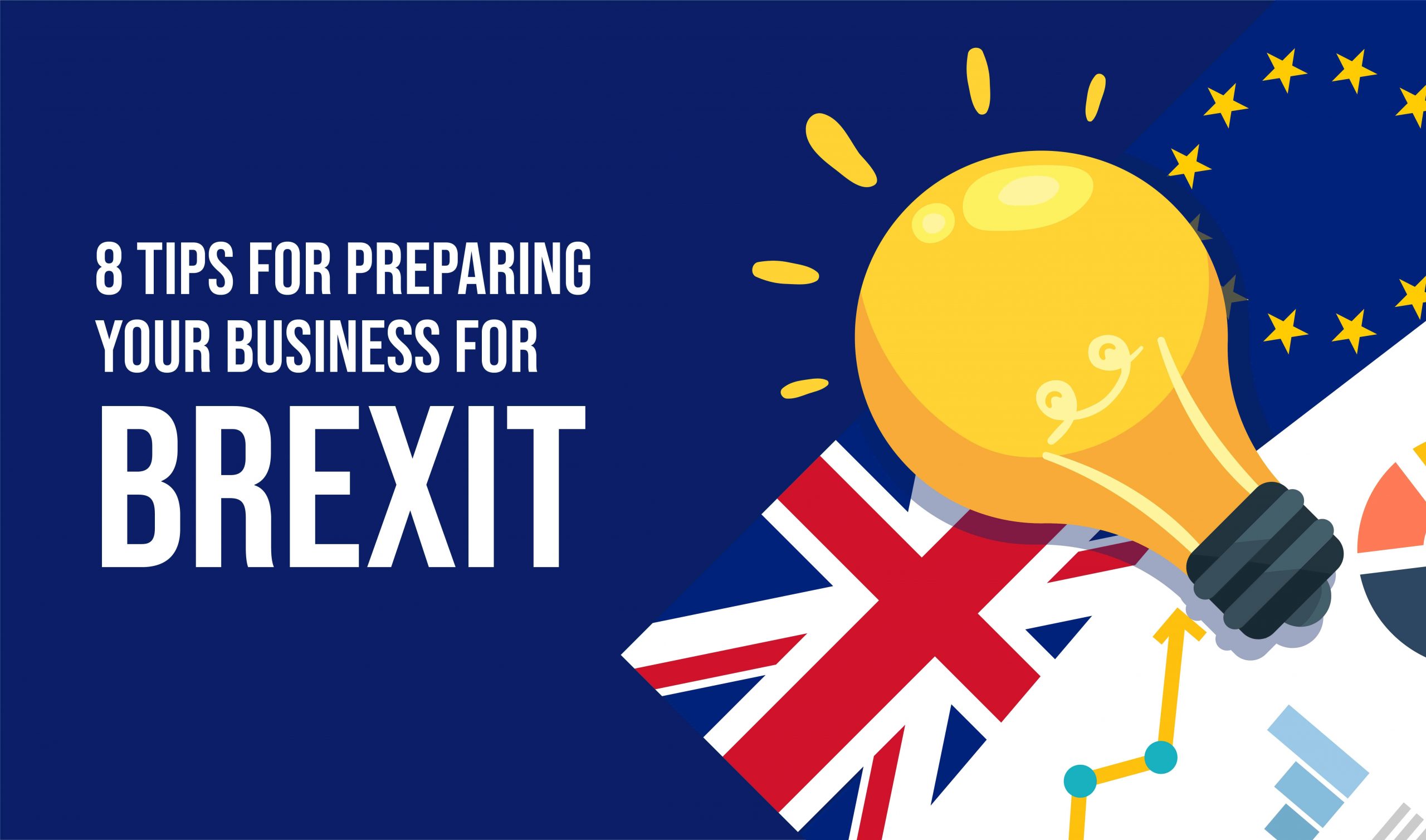
8 Tips for Preparing your Business for Brexit
Time to read: 3 minutes
Reading time: 3 min 7s
The EU recently reached an agreement to extend the Brexit deadline to 31 January 2020. For the businesses importing or exporting to the UK or EU, specific changes can be expected.
But you don’t have to wait until the disruption finally occurs. To avoid disruptions to your supply chain and your entire business, the best time to act is now. Whether it turns out to be a hard (unmanaged) Brexit or a soft Brexit, you’ll be better off prepared for the worst even while you’re expecting the best.
Hard Brexit: The Cold Hard Truths
A hard Brexit may necessitate the sudden establishment of tariff and non-tariff barriers. While this can be expected to affect most RoRo Ferry crossings from Europe and the UK, this will also cause a steep rise in customs declarations, possibly by up to five times as much. Truck traffic in the first 60 days may also be slowed down due to the new controls on the side of the EU, at least within the first three months.
Businesses with their location int the UK for EU operations would also have to register a new location in mainland Europe. Even if your goods aren’t crossing the UK borders, Brexit and the associated implications may still impact your business, somehow. VAT payments aswell may also get some changes, so it’s important to generally broaden your understanding of global trade, for greater ease.
8 Tips for Preparing Your Business for Brexit
It makes sense that the UK customs authority, HMRC, is doing its best to ensure importers are adequately informed to ensure quick entry of goods into the UK after Brexit. Here are some things you may want to consider;
1. Get an EORI that starts with GB
The HMRC says it will only allow non-GB EORI numbers for a limited time post-Brexit. After some time, you’ll be required to get an EORI number that starts with GB import to the UK.
2. Proper classification and international trade requirements
You may consider getting the help of a customs broker in this case. Choosing the correct code from the thousands of possibilities will help you avoid delays of hefty fines.
3. Leverage TSP
The Transitional Simplified Procedure introduced by the HMRC allows importers to make minimal information declaration at ports. The TSP license may also be used to postpone VAT/Duty payment in full, up to six months after import. This is needed if you will be importing or exporting goods to or from the UK from any of the post-Brexit EU27.
4. Knowing your incoterms
It’s important to know what incoterms you use. Whether you’re buying or selling, you may be required to appoint a broker and also provide specific information with which they can act as an agent on your behalf.
5. Be informed about temporary tariffs
HMRC is working on instituting a temporary tariff regime for a year with 0-rate duty on some products. This will apply to both EU and non-EU countries and will be shaped by the WTO law. As of now, the HMRC, Parliament, and the Prime Minister are yet to agree on the specific details of the tariff regime. So, you can either be on the lookout for this or discuss it with your customs broker.
6. Security deposits and duty deferment
The HMRC plans to waive some security deposits. There are also plans to lift certain financial guarantees when you apply for a comprehensive customs guarantee. Establishing a duty deferment will also become much easier as the requirements will be loosened.
7. Changing your approach to VAT
Your tax accounts should be up to date on the latest ways to file and account for VAT. Right now, VAT is paid upon import by a Flexible Accounting System, FAS Account, or deferment. After Brexit, this will be paid later and merely accounted for in VAT filings upon import. With this, there will be no more need for security guarantee or VAT deferment.
8. Expedite exports
You may have to trade goods in which case there is no buy or sell agreement between the different sides of the trade in the UK and EU. In this case, you may need to undertake certain complicated studies to determine your valuation method in line with the WTO guidelines. You can consider getting help from your broker or trade attorney to avoid shipment delays if there is a D1ND.
Bottom Line
Brexit and its implications are quite complicated, especially at it relates to organizational supply chains. However, getting the help of a knowledgeable customs broker or a freight forwarder with integrated customs brokerage may prove vital in the critical times ahead.
ZhenHub is well-positioned to help you navigate the complexities that abound here and in the other major global markets. You can contact us today to see how we can help.
If you need assistance with reducing logistics costs, you can reach out to our specialists – hello(a)zhenhub.com or submit an enquiry here.